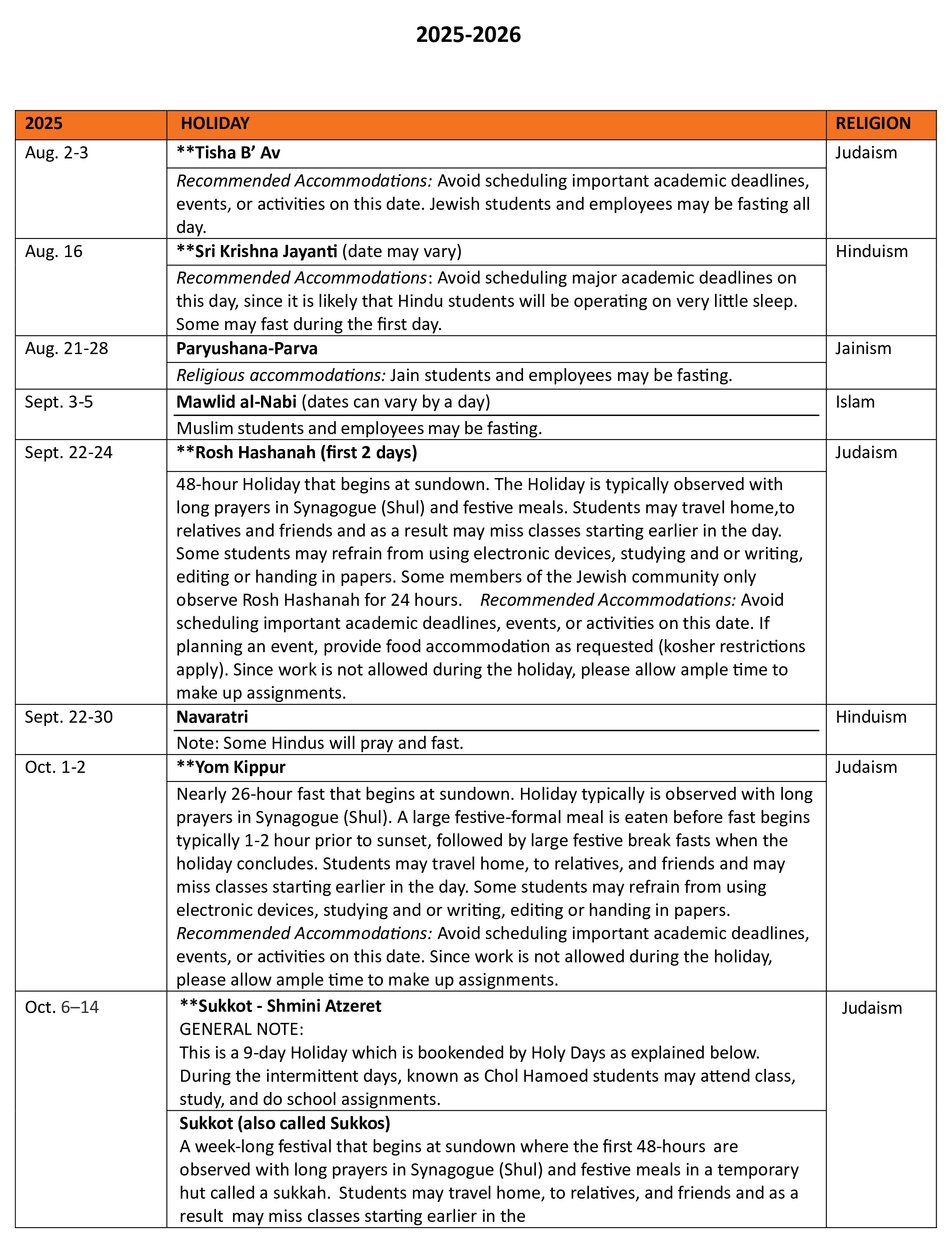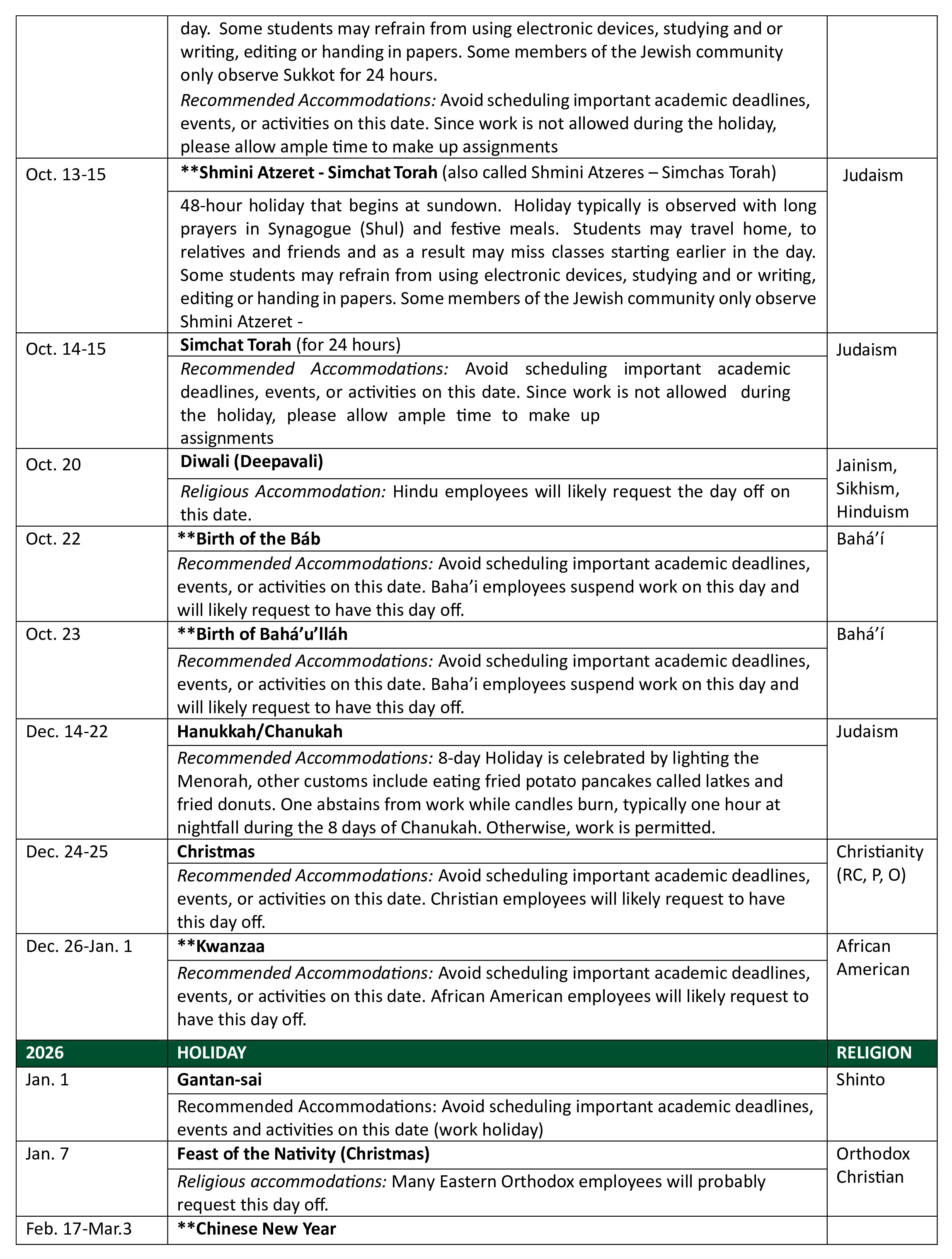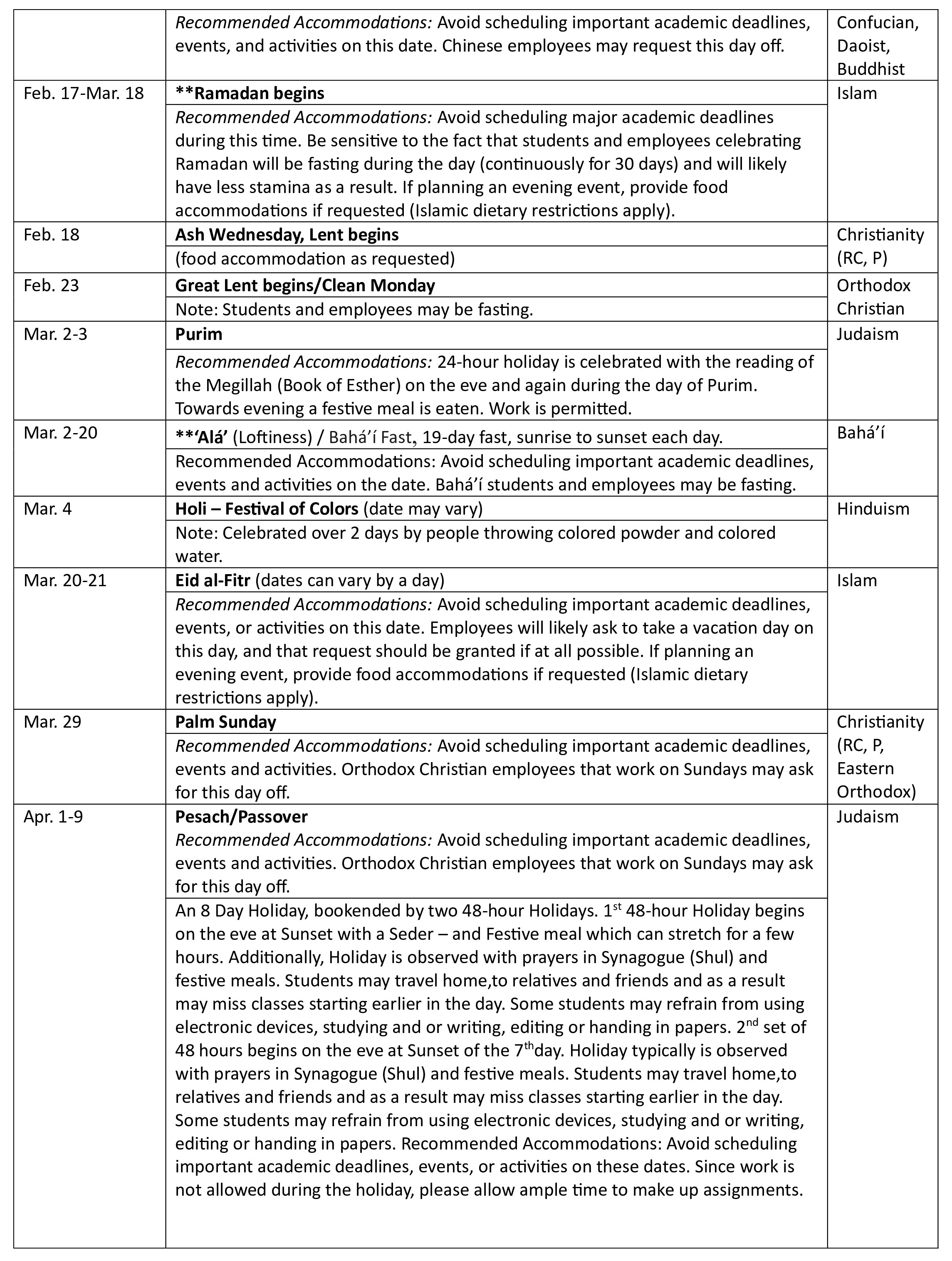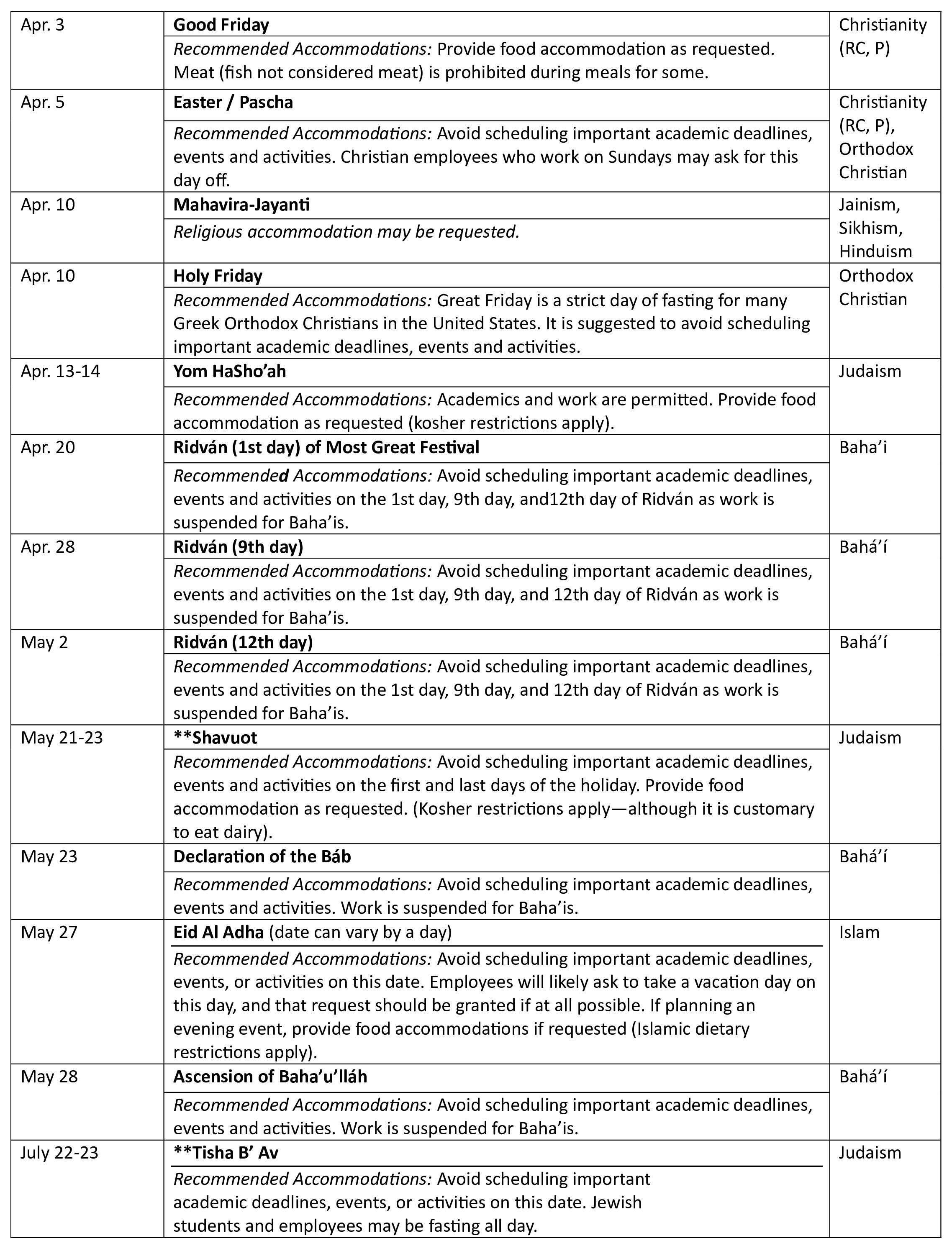The University of Miami, although a secular institution, is determined to accommodate those students who wish to observe religious holy days. It seeks to reflect its awareness of and sensitivity to religious holy days whenever possible when scheduling University activities. The following provisions are meant to apply equitably to all religious groups and to provide opportunities to all to meet their religious obligations.
- Except as specifically provided to the contrary, this policy is binding on all students in undergraduate programs. Schools offering graduate or professional programs, including undergraduate professional programs, are strongly encouraged to adhere to these policies to the maximum extent practicable.
- Any student absent from class in observance of a religious holy day shall not be penalized in any way for an examination or assignment missed during the period of absence. Absence in observance of a religious holy day does not relieve students from responsibility for any part of the course work required during the period of absence. Students who are absent on days of examinations or class assignments shall be offered a reasonable opportunity to make up the work without penalty, if the student previously arranged to be absent. Nothing in this policy shall preclude faculty members from limiting the number of student absences to a reasonable number of absences for any reason. The faculty member has discretion to determine how the make-up obligation will be fulfilled. A faculty member who penalizes a student contrary to these provisions may have committed unprofessional conduct, and thus may be subject to a complaint to the Committee on Professional Conduct under the provisions of Section B4.9 of the Faculty Manual.
- It is the student’s obligation to provide faculty members with notice of the dates they will be absent due to observance of religious holy days, preferably before the beginning of classes but no later than the end of the first three class days. For religious holy days that fall within the first three class days, students must provide faculty members with notice no later than two class days before the absence. Missing a class due to travel plans associated with a particular religious holy day does not constitute an excused absence. Absences due to observance of religious holy days that are not pre-arranged with the relevant faculty member within the first three class days may be considered unexcused, and the faculty member may therefore prevent the student from making up examinations or assignments missed during the period of absence.
- Faculty members are encouraged to anticipate days when a substantial number of students will be absent for observance of religious holy days and should avoid scheduling examinations and assignment deadlines on those days. Faculty members are expected to reasonably assist students in obtaining class information the student missed during the period of absence in observance of a religious holy day. In that regard, faculty members are urged to allow taping or recording of the class session, with the reproduction limited to the student’s personal use, when a student misses a class due to observance of a religious holy day. To assist in identifying religious observance days, faculty members are encouraged to consult the illustrative list provided in the Interfaith Calendar. Faculty members are urged to remind students of their obligation to inform faculty members within the first three class days of any anticipated absences due to observance of religious holy days and should include that information in the syllabus or course requirements document for that course.
University of Miami Multifaith Religious Holiday Calendar
The list that follows is not exhaustive. It includes notable festivals and holy days that may require appropriate accommodations for students and employees. (If this calendar does not include a significant date of your religious tradition, please contact PETAL@miami.edu. Every effort has been made to ensure that this information is accurate. Note that some holidays in some traditions are tied to the lunar calendar or to particular cultural patterns that vary by region, which make their location in the calendar somewhat more fluid.
Dates marked with a double asterisk (**) denote occasions on which the precept of a particular tradition and the practice of nearly all its adherents includes significant restrictions on academic activity.
Islamic Holidays: Regional customs or moon sightings may cause a variation of the date for Islamic holidays, which begin at sundown the day before the date specified for the holiday. The Islamic calendar is lunar and the days begin at sunset, so there may be one-day error depending on when the New Moon is first seen.
For holidays associated with Christianity, the following notations are used to denote observance by particular strands of the Christian tradition:
- RC-Roman Catholic,
- P-Protestant,
- O-Orthodox.
Printable version of the calendar







